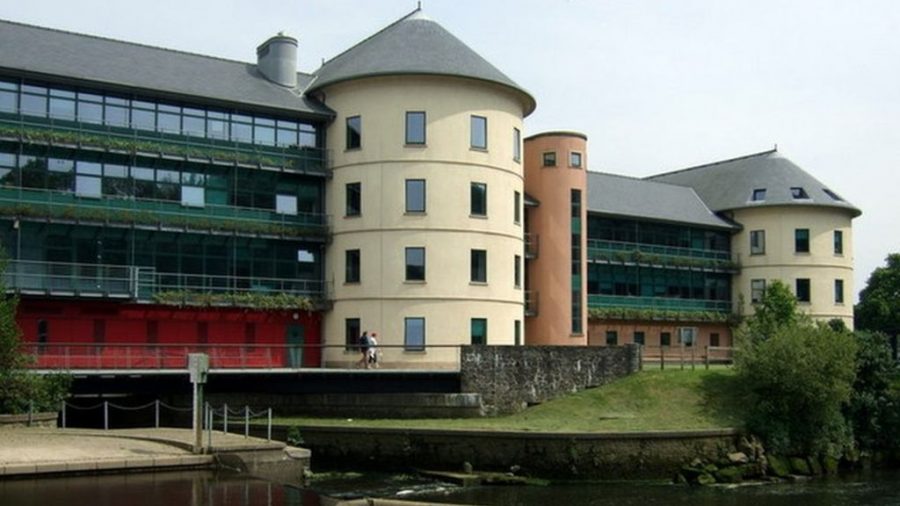News
Energy drink ban for under-16s being considered in bid improve health in Wales

MINISTERS in Wales are considering banning the sale of energy drinks to under-16s and limiting the number of hot food takeaways near schools in a bid to tackle rising obesity rates.
The Welsh Government says the rising consumption of high-caffeine energy drinks among young people is also causing concern about the effects on their education.
Deputy Minister for Mental Health and Wellbeing, Lynne Neagle also wants to hear people’s views on restricting the promotion of foods high in fat, sugar or salt, ending free refills on sugary drinks and expanding the publication of calories on menus.
According to official statistics, approximately 1.6 million adults are overweight and 655,000 people are obese in Wales.
In addition, more than one in four of children in Wales are overweight or obese when they start primary school. It is estimated obesity costs the NHS £6.1 billion per year across the UK.
Lynne Neagle said: “We want to hear people’s views on how we can support the nation to be healthier and to reduce the number of people who are obese or overweight.
“Often, foods that are sugary or high in fat or salt are more readily available and promoted, making it harder for people to make the healthy choice.

“We know this is a difficult time for people with the growing cost of living crisis putting huge pressure on people financially.
“However we also know If current obesity trends continue, more people in Wales will die prematurely from cancer, heart disease, liver disease and type 2 diabetes.
“We need an open and frank conversation about how we can create a step change in our choices and behaviours. We are talking about reversing significant issues which have built up over generations in our food environment. I am launching the consultation today to start that conversation.”
The latest National Diet and Nutrition Survey shows people are consuming too much sugar, saturated fat and salt and too many calories, but not enough fibre, fruit and vegetables. The survey shows that young people aged between 11 -18 years consume up to three times the recommended maximum amount of sugar.
As part of Healthy Weight: Healthy Wales, the long-term strategy to prevent and reduce obesity, the Welsh Government is today consulting on banning the sale of energy drinks to young people under 16. Some energy drinks have 21 teaspoons of sugar and the same caffeine as three cups of coffee. Research shows that children who drink at least one energy drink per week are more likely to report symptoms such as headaches, sleep problems and stomach problems as well as low mood and irritability. There is also evidence to link regular energy drink consumption with low educational engagement.
It will also ask how our communities can be healthier environments, suggesting that planning for new hot food takeaways takes into account how close they are to schools and colleges and ensures factors such as existing saturation, local obesity rates and social demographics are considered and reflected.
The Deputy Minister added: “It’s clear that children and adults in Wales are not eating balanced diets, we have fallen into a pattern where foods high in fat, sugar or salt are readily available.
“Dietary behaviours in our childhood have a significant influence in what and how we eat and drink in later life.
“The consultation has a focus on children and young people and how the environment near their school and colleges can have a huge impact on how they eat.
“I was pleased to meet the young people at Whitchurch High to hear first-hand their views and opinions, which was incredibly insightful.
“The proposals set out in this consultation would support the long-term health and wellbeing of our nation. If we continue as we are, then sadly more lives will be adversely affected by ill health, both physically and mentally.”
The consultations will run until 1 September 2022.
Commenting on the consultation, Shadow Minister for Mental Health James Evans MS, said:
“It is important that children are protected from damaging products, but Labour have had 23 years in charge of health in Wales and obesity levels have kept rising despite a variety of consultations and strategies.
“I hope this one will be different, but the devil is in the detail. Any obesity strategy needs to be multifaceted, including the full return of NHS weight management services to their pre-pandemic status which Labour Ministers have refused to do.”
Crime
Former Wales rugby star admits Christmas Day drink-driving offence

Ex-Ospreys captain was almost twice over limit in Pembroke town centre
Former Wales back row Jonathan Thomas has admitted driving through Pembroke town centre on Christmas Day when he was almost twice over the drink-drive limit.
This week Haverfordwest magistrates heard that Thomas, 43, was stopped by officers as he drove his Mercedes CLA 220 along The Green, Pembroke, at around 5pm on Christmas Day.
“The officers were very concerned at the manner of his driving, as the car was being driven erratically and was swerving to the other side of the road,” said Crown Prosecutor Sian Vaughan.
“When Jonathan Thomas got out of the car, the officers could see that he was having difficulty standing and was unsteady on his feet.”
Subsequent breathalyser tests showed Thomas had 62 mcg of alcohol in his system, the legal limit being 35.
Thomas, who has no previous convictions, pleaded guilty to the drink-drive charge and was represented in court by solicitor Jess Hill.
“He has family in the area and had travelled to spend time with them on Christmas Day,” she told the magistrates. “He’s very remorseful for his actions and hugely regrets his decision that day.”
Jess Hill concluded by saying that Thomas is currently “between jobs and living off his savings”.
Thomas, who gave his address as Main Road, Bredon, was disqualified from driving for a total of 18 months.
“The length of your disqualification reflects the fact that you were more than a little bit over the limit,” commented the presiding magistrates when imposing sentence.
He was fined £120 and ordered to pay £85 costs and a £48 court surcharge.
The former Wales back row left his role as Swansea RFC head coach at the beginning of December 2025 as a result of ongoing health concerns. He was forced to retire from playing in 2015 on medical advice after being diagnosed with epilepsy and is one of the 390 former rugby union players currently taking part in a concussion lawsuit against the sport’s authorities.
“Long-standing issues linked to the head trauma have caused me some concern recently and it has been impossible for me to give the role everything it needs,” he said in a previous interview with the BBC.
His rugby career started out with Pembroke RFC juniors before moving to Swansea RFC, which he captained when he was 19. He then joined the Ospreys where, over a ten-year period, he won four league titles and an Anglo-Welsh Cup. He was the youngest player to captain the Ospreys and, at the time of leaving, was the joint highest appearance holder, together with Andrew Bishop, on 188 appearances.
His international career saw him play for Wales at Under-16, Youth, Under-19, Under-21 and Sevens levels. He made his senior international debut against Australia in 2003, featured at the 2007 Rugby World Cup and was part of two Six Nations Grand Slam-winning sides in 2005 and 2008. Between 2004 and 2011, Thomas was included in every Wales Six Nations squad. In his appearances for Wales, he scored seven tries.
Local Government
Independent panel gives positive verdict on Pembrokeshire County Council

Four-day assessment highlights improvement, leadership and governance
AN INDEPENDENT panel has concluded that Pembrokeshire County Council is meeting its statutory performance requirements and has shown improvement across a number of key areas.
The findings follow a four-day visit in October 2025, when a group of external peers carried out a Panel Performance Assessment (PPA), a process required once every electoral cycle under Welsh Government legislation.
The purpose of the PPA is to provide an independent expert view on how effectively the council is using its functions, how it deploys resources, and whether its governance arrangements are fit for purpose.
The four-member panel was led by Phil Roberts, independent chair and former chief executive of Swansea Council. Other members were Cllr Anthony Hunt, leader of Torfaen Council; Emma Palmer, chief executive of Powys Council; and Andrea Street OBE, representing the public, private and voluntary sectors.
In its final report, the panel concluded that Pembrokeshire County Council is meeting its statutory requirements and commented favourably on many aspects of its work. The authority was described as effective, having responded well to a challenging financial position and demonstrated improvement in a number of key areas.
Among the report’s findings was praise for “a cohesive cabinet, which despite its rainbow coalition arrangements, exercises a model of distributed leadership which is particularly effective”. The panel also highlighted “a committed Senior and Extended Leadership Team who recognised the journey of improvement the council has been on under the Chief Executive’s strong leadership”.
The panel further noted “a broad set of values and behaviours consistently demonstrated across the organisation, from the Senior Leadership Team to frontline staff”, adding that there was “a genuine desire to work in the interests of the communities and residents of the county”.
While the overall assessment was positive, the report also identified areas where further progress could be made. Seven recommendations were set out, covering scrutiny arrangements, corporate capacity, collaborative leadership, economic regeneration capacity, resource prioritisation, communications, and transformation and innovation.
Council leader Jon Harvey welcomed the report, describing the assessment as a constructive experience.
“This was an extremely positive experience for the council, and an opportunity to learn and benefit from the views and perspectives of independent experts from outside the authority,” he said. “We welcome the assurance provided by the panel that we are on the right track, and the feedback which has helped to identify opportunities and areas for improvement.”
Cllr Harvey also thanked panel members for their work, along with officers from the Welsh Local Government Association who supported the assessment process.
“We accept the panel’s findings in full and I am convinced that the action plan we have developed in response to the recommendations will enable us to further strengthen key areas of our work so we can continue to provide quality services to our residents and communities,” he added.
In line with legislation, the council has produced a formal response and action plan setting out how it will address the panel’s recommendations. These will be presented to Cabinet on February 9 and to full council on March 5 for formal approval.
News
Kurtz calls on Labour MPs to back release of Mandelson papers

Opposition motion follows Epstein-linked document disclosures
A SENEDD Member has called on Labour MPs to support a Conservative Opposition Day Motion demanding the release of papers linked to Peter Mandelson’s appointment as the UK Ambassador to the United States.
Samuel Kurtz said the motion follows the publication of new files and photographs involving Lord Mandelson, which were released as part of a United States investigation into the disgraced and convicted child sex offender Jeffrey Epstein.
Speaking out, Mr Kurtz said that during Prime Minister’s Questions, the Prime Minister admitted he was aware of Peter Mandelson’s ongoing relationship with Epstein at the time of his appointment.
“That means the Prime Minister knowingly appointed Peter Mandelson to one of the most important diplomatic roles in government despite his links to Epstein,” he said. “This raises serious questions about the Prime Minister’s judgement.”
Mr Kurtz went on to accuse the Prime Minister of attempting to prevent transparency over the appointment process.
“Now, instead of being open and transparent, the Prime Minister is attempting to block the release of documents relating to Mandelson’s appointment in order to protect his own position,” he said.
He warned that Labour MPs who oppose the motion would share responsibility for withholding information, adding: “If Labour MPs support blocking the release of these papers, they will be complicit in covering up the process and judgement that led the Prime Minister to appoint Peter Mandelson as Ambassador, despite his friendship with Jeffrey Epstein.”
-

 Health6 days ago
Health6 days agoConsultation reveals lack of public trust in health board
-

 Community7 days ago
Community7 days agoPembrokeshire students speak at national Holocaust Memorial Day event
-

 News1 day ago
News1 day agoPrincess of Wales visits historic Pembrokeshire woollen mill
-

 Crime5 days ago
Crime5 days agoPembroke man accused of child sex offences sent to Swansea Crown Court
-

 Community6 days ago
Community6 days agoCampaign to ‘save’ River Cleddau hits over 2,200 signatures
-

 Health3 days ago
Health3 days agoDoctor struck off after sexual misconduct findings at Withybush Hospital
-

 News7 days ago
News7 days agoWelsh Conservatives push for reversal of 20mph limit and major road spending
-

 Health7 days ago
Health7 days agoAmbulance called after ‘drop of mouthwash’ swallowed as 999 abuse highlighted


























